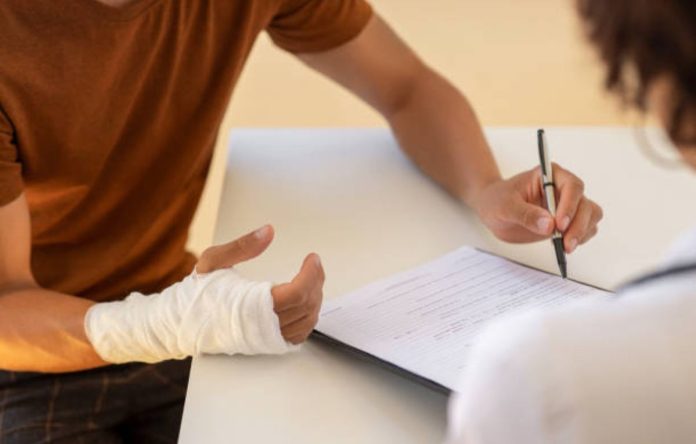A slip and fall accident claim falls under the umbrella of premises liability law. To file a successful claim, you must show another party’s negligence. Unfortunately, this can be challenging.
Every case is unique, so you need help from slip and fall attorneys in Connecticut to ensure you have a strong claim.
Here, you can learn more about how slip and fall accident claims work.
Common Causes of Slip and Fall Accidents
A slip-and-fall accident can happen anywhere at any time. However, some causes are more common than others, which include:
Wet or Uneven Surfaces
One frequent cause of slip-and-fall accidents is wet or uneven surfaces, which are often found in areas with poor maintenance or inadequate warning signage.
Common examples include spills in grocery stores or restaurants, puddles from recent cleaning activities, and icy walkways during colder months, all of which pose a significant risk to pedestrians.
Inadequate Lighting
Inadequate lighting is another significant contributor to slip-and-fall accidents. Poorly lit areas such as stairwells, corridors, or parking lots hinder visibility, making it difficult for individuals to spot potential hazards in their path. This lack of proper lighting increases the likelihood of accidents.
Cluttered Walkways and Tripping Hazards
Cluttered walkways and tripping hazards, like loose wires or debris, also play a substantial role in causing slip and fall incidents. These obstacles can often go unnoticed, leading to unexpected trips and falls.
Defective or Poorly Maintained Infrastructure
Defective or poorly maintained infrastructure, such as broken steps, loose handrails, and uneven flooring, constitutes a severe risk. Property owners are responsible for maintaining safe conditions, and their negligence in addressing these issues can result in significant injuries.
Legal Requirements for Slip and Fall Claims
Several legal requirements must be met to file a viable slip and fall claim in Denver. These include:
Duty of Care
One of the foundational elements in a slip-and-fall claim is the duty of care that a property owner owes to individuals on their premises. Property owners, both private and public, are legally required to maintain a safe environment. Failure to uphold this duty can make them liable for injuries caused by hazards they neglected to address or warn against.
Proving Negligence
To successfully claim compensation, the property owner must be established to have been negligent. This involves demonstrating that the owner knew, or should have known, about the hazardous condition but failed to take appropriate action to rectify it.
Proving negligence often requires thorough investigation and evidence collection, which injury lawyers in Connecticut can handle.
Causation and Damages
In addition to proving negligence, a claimant must establish a direct link between the property owner’s failure to maintain safe conditions and the injury sustained. This includes providing evidence that the slip-and-fall incident directly caused the injuries the victim seeks compensation for. Documentation such as medical records, witness statements, and expert testimonies is crucial in establishing this connection.
Comparative Negligence
Connecticut follows the principle of comparative negligence, which means that if the plaintiff is found to be partially at fault for the accident, their compensation could be reduced by their percentage of fault. Slip and fall attorneys must carefully assess and present evidence to minimize any attributions of fault to their clients, ensuring a fair settlement.
Steps to Take After a Slip and Fall Accident
What you do after a slip and fall accident can impact the outcome of your claim. Steps to take to protect yourself and your right to compensation include:
Seek Immediate Medical Attention
The first step after a slip-and-fall accident is to seek immediate medical attention. Even if injuries appear minor, a professional evaluation is essential to ensure no underlying issues are overlooked. Prompt medical treatment also records the injuries sustained, which can be critical for future legal claims.
Report the Incident
After addressing any immediate medical needs, the next step is to report the incident to the appropriate party, such as the property owner, manager, or security personnel. This ensures an official record of the accident and its circumstances. Obtaining a copy of this report can be beneficial when pursuing a claim.
Document the Scene
Gathering evidence at the scene is vital. This includes taking photographs of the location, any hazardous conditions that contributed to the accident, and any visible injuries. Additionally, collecting contact information from witnesses who corroborate your account of the incident can strengthen your case.
Preserve Evidence
Preserving any evidence is crucial for building a solid claim. This can include keeping the clothing and shoes worn during the accident, as they may contain physical evidence like tears, scuff marks, or slippery substances. Retaining any medical bills, treatment records, and other related documents will support your compensation claim.
Consult with an Injury Lawyer
Consulting with an injury lawyer experienced in slip and fall cases is highly recommended. An attorney can provide valuable guidance on the legal process, help gather necessary evidence, and advocate on your behalf. Injury lawyers in Connecticut are skilled at navigating these cases and can offer the guidance needed to pursue fair compensation for your injuries.
Protecting Your Rights to Compensation After a Slip and Fall Accident
In personal injury law, slip and fall cases present unique challenges that require attention to detail and a comprehensive understanding of legal principles. From understanding the duty of care and proving negligence to the critical steps immediately following an accident, each element plays a crucial role in building a strong case.
Working with a slip-and-fall accident attorney will help you seek justice and compensation for your injuries and losses.








